[:en]I’m writing these lines from Thessaloniki, Greece, while most of the continent – and a large part of the world – is on “lockdown”. The last few days have seen an unprecedented coordinated effort to limit the advance of the COVID-19 pandemic, and the human-to-human transmission of the SARS-CoV-2 coronavirus that has cost the lives of many.
It’s peculiar to gaze on empty streets, work from home and leave the house only for essential supplies. It is even stranger to do so on a sunny day in the Mediterranean south.
But right now, it’s what we have to do for the benefit of all.
For those at the European Space Agency (ESA) who have served as medical doctors in isolation, these circumstances are not entirely new. For me, they conjure lucid memories of a year-long stay with 12 colleagues at Concordia Station in Antarctica.
For nine months in 2014, we were completely cut off: no plane nor vehicle could reach us due to the extremely low temperatures. For most of our stay we were also confined inside our Station. To exit, we had to don a heavy polar suit of many layers – a bit like astronauts venturing into space – and we couldn’t remain outside for too long due to the frost.
We couldn’t see or touch our family and friends for 12 long months, and during that period, communication by phone or internet was difficult.
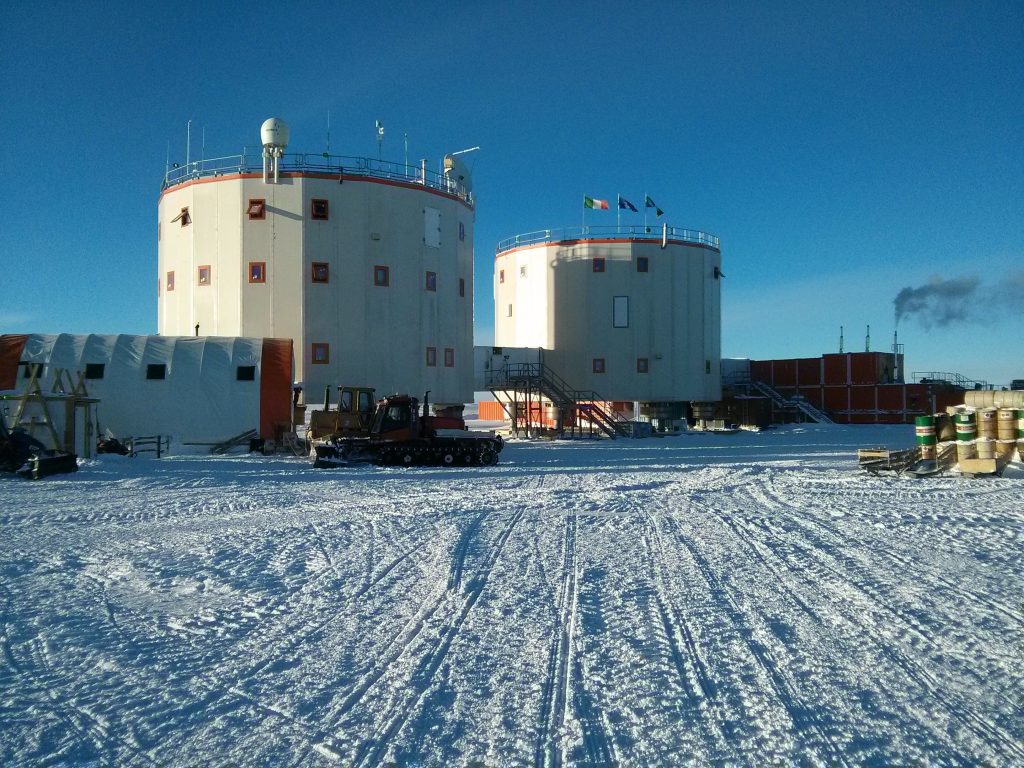
Here’s Concordia Station. Imagine having to spend a full year inside this “tin can” in Antarctica…ESA-A.Golemis.
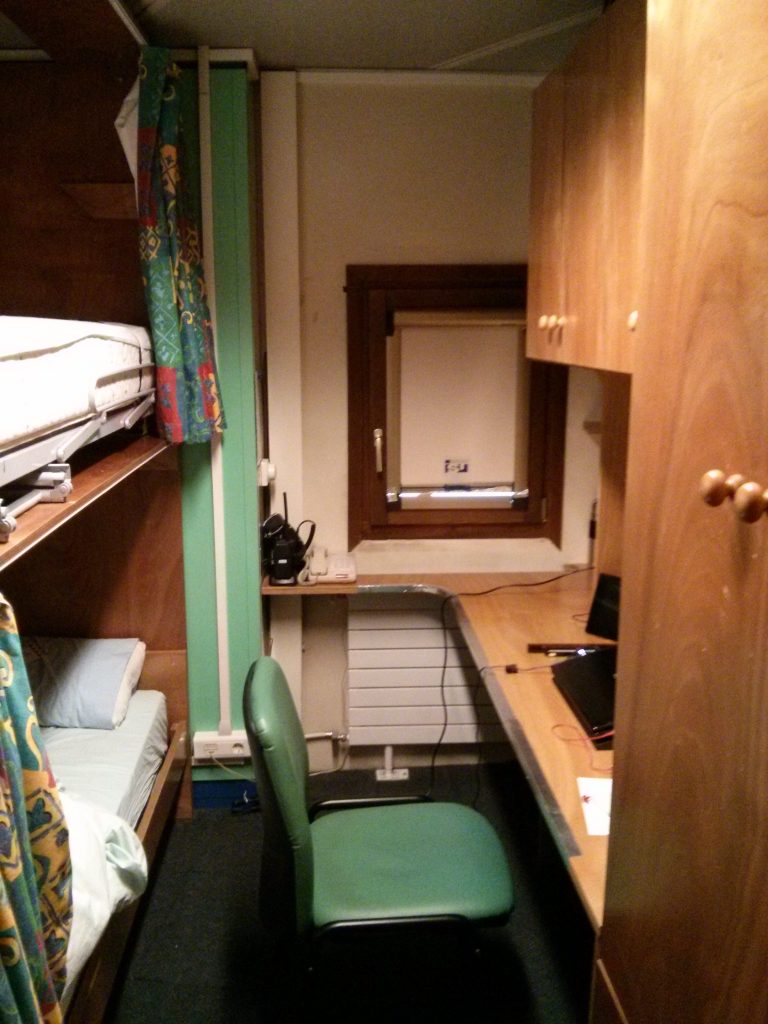
Typical Concordia room interior – that’s all the private space you’ll have for 12 months! ESA-A.Golemis.
The quarantine phase preceding the launch of European Astronaut Luca Parmitano to the International Space Station in 2019 was a similar, albeit shorter, experience.
Luca and his crewmates were launched on a Russian Сою́з (Soyuz) rocket from the historical site of Baikonur. But before they could begin their journey, a medical team had to make sure they were healthy and not exposed to any infectious diseases that could jeopardise their mission.
Doing so takes about three weeks. Crew members live with doctors and crew support personnel in a limited-access complex. The quarantine period provides enough time to make sure crew don’t develop symptoms due to previous contamination and guards them against exposure to new pathogens.
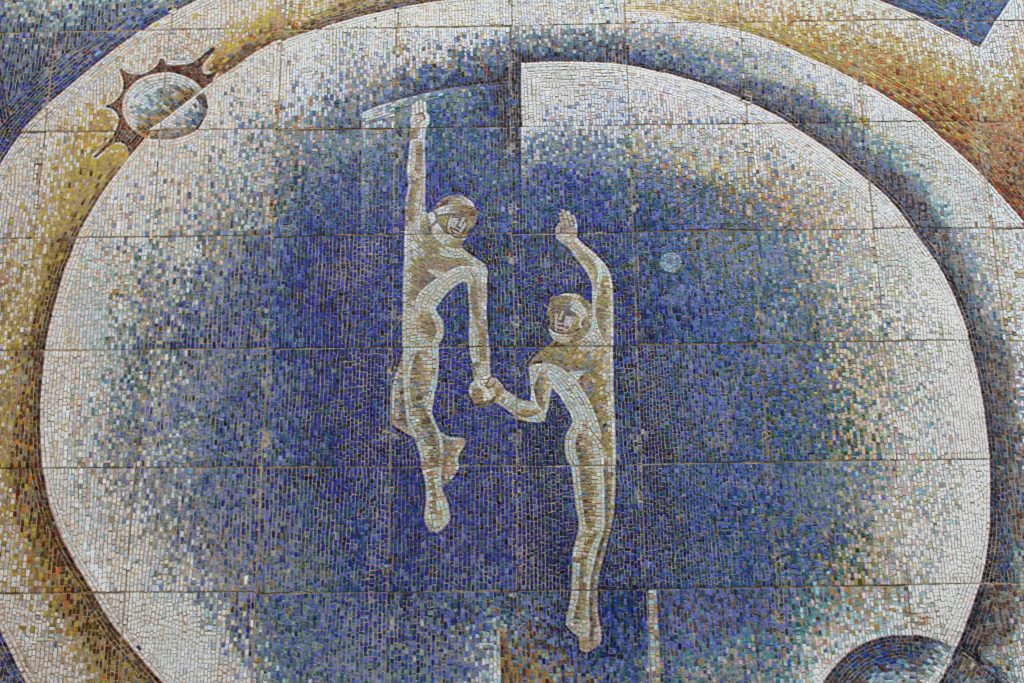
Mosaic with Cosmonauts at the Baikonur quarantine complex in Kazakhstan. ESA-A.Golemis.
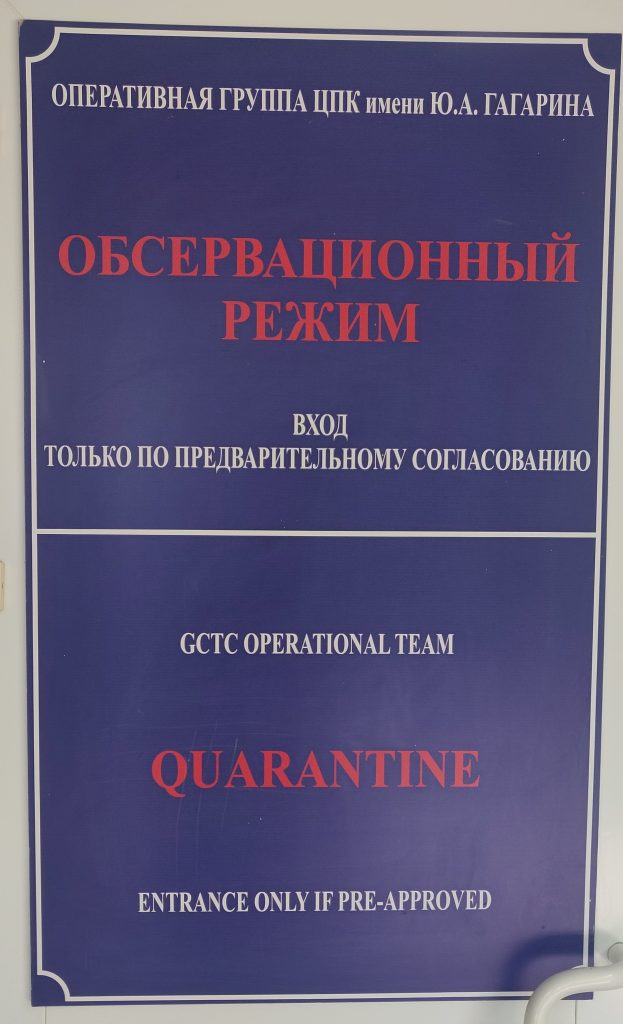
Entry prohibition sign at the Baikonur quarantine complex in Kazakhstan. ESA-A.Golemis.
In situations like this where you cannot leave the premises, your choice of activities is limited. Many people in Europe, and around the world, are being asked to live with similar restrictions right now. But how do we manage to pull through over a few weeks, or a month, or even more?
With a few tips, the right mindset and part one of this two-part blog series…
Tricksters of the clock
When I go running, and aim to run 5 km, I begin feeling tired at the 4th km. Yet, when I aim to run 10 km, I only start to feel tired at km 7 or 8.
It seems, when we need to prevail, our minds can be “tricked” to our advantage. The clock ticking on the wall suddenly takes a subjective value – with self-discipline and patience we can bend it to our will.
In isolation, there are many tricks to help us overcome the frustration of having limited options, for days, weeks or even months. Setting a goal and defining clear milestones can be a great start.
1. Set goals and milestones
Before leaving for Concordia, we knew we would stay in Antarctica for roughly one year. There was no chance to go back before that. But the exact period was not so easy to calculate.
On our way back from the Antarctic coast to Europe, our ship got stuck in the ice. With even less personal space, less communication and less patience, we ended up staying away from our loved ones for 14 months, instead of the expected 12.
But, what kept us going was those milestones. Personally, I had compiled a spreadsheet calculating the percentage of time I had completed in isolation, plus the amount of days were left until the next sunrise, the first plane bringing new faces in, or my return trip. I had optimistic and worst-case scenarios.
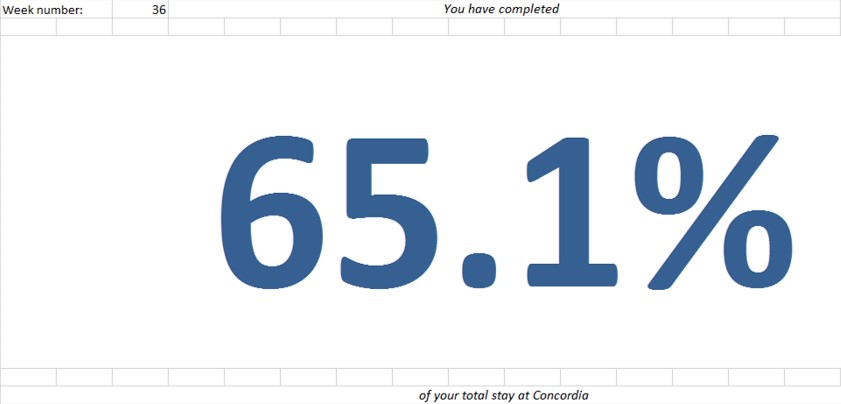
Establishing milestones can prove vital for isolation. It feels great to know for example that you are past 50%. ESA-A.Golemis.
I am sure that for the COVID-19 lockdown we can be more imaginative and come up with a better way of monitoring progress. Also, it’s good to set milestones incrementally. So, how about we start with 50 days as our goal?
Of course, we all hope the pandemic subsides sooner. But it could also take much longer… So, 50 days inside, without going to a park or to the office, without opera or cinema, how can we deal with that?
2. Combine skills with imagination
If you like spaceflight, 50 days is about the time it would take an astronaut to fly from the Earth to Venus.
If anyone reading this is a programmer, how about designing a desktop background that resembles the window of that Venus-bound spacecraft? You could make Venus appear larger and larger every day until we reach day 50, and our virtual destination.
And what if we still have to stay inside after day 50? Well, we’ll have to come back from Venus, right? I encourage you to get creative as you turn this time into a journey.
3. Make magic from mundane
Now, if you want to become a real ‘Trickster of the Clock’, you will also have to invent ways to make routine days at home seem special.
At Concordia, we had a big calendar on the wall with all the usual holidays marked. Even though we couldn’t take the day off and head to a café to celebrate, we did cook a special dish or play a special song or simply dress nicely on that day. Small changes matter.
And here’s another way to trick the clocks: if you forcibly have to stay home, notice how important it is to alternate the things you do while you’re inside. You may enjoy the opportunity to catch up on a TV series and watch an extra couple of movies. But there are other, more “exotic”, active choices you can explore too.
I watched a plethora of films and read some 30 books during my 14 months in Antarctica. I added more books and movies to that score while in quarantine in Baikonur. It’s pleasant and easy, but as a range of activities, it is very limited.
So, I decided to take my first steps into cooking at Concordia. I am a terrible cook, but I needed to find something productive to do while “locked inside” and it felt good! Even if I could not swim in the sea during the summer, or go hiking in the winter, with cooking attempts I introduced a bit of diversity into my daily life again.
4. Share and connect with others
The fourth trick is one you all know. So, I’ll just refresh your memory: sharing moments with others, can really “speed up the clocks”.
While in quarantine in Baikonur, we had activities we participated in together ranging from work meetings to common meals. At Concordia, we played board games and organised thematic dinners.
Sharing is important and you can use the time you have to spend inside to connect with the people around you. But allowing yourself and others some privacy is equally important, which brings me to tip five…
5. Reconnect with yourself
No matter how much you love and care for the people you may be confined to your house with at the moment, too much time with anyone tends to lead to irritation.
Taking some time for yourself helps ease the tension that occurs naturally in confinement, while allowing you to focus on personal initiatives that can boost your psychology. A healthy balance between sharing and time for the self is crucial.
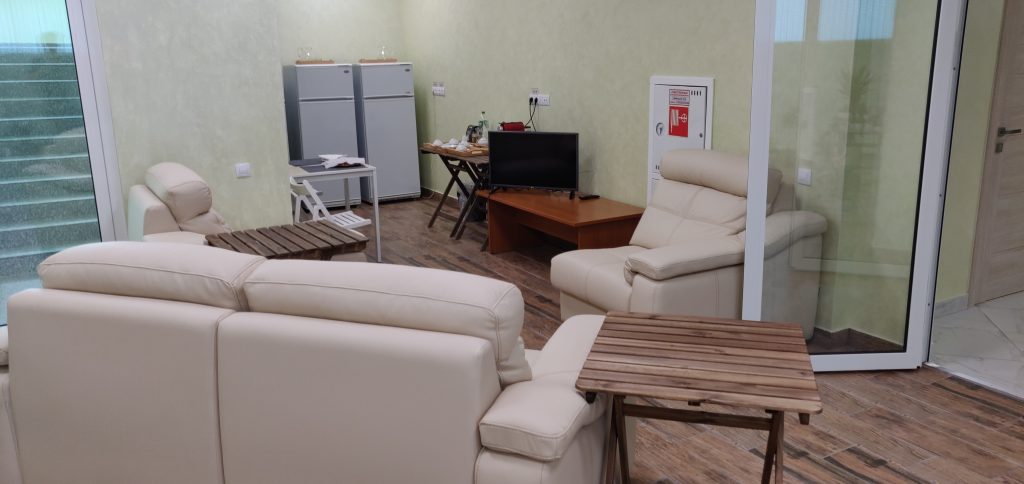
Sharing in isolation: This small corner at the Quarantine complex is where astronauts, crew support personnel and medical doctors would gather – for coffee in the morning and movies in the night. ESA-A.Golemis.
Now you know a bit more about how we cope on long missions to Antarctica and in quarantine ahead of launches. Stay tuned for my next post on how to reframe your thoughts and make the most of this uncertain time.
[:]



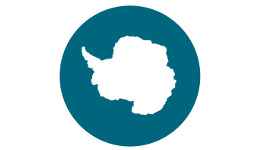
Discussion: no comments